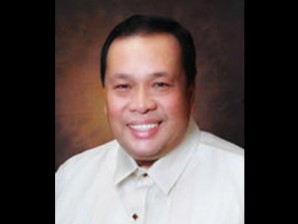Congress mulls turning to Malampaya Fund
MANILA, Philippines–Congress is considering using the Malampaya Fund to absorb the additional cost of tapping a new power supply to avert a power shortage this summer and minimize the impact on businesses and households.
But the party-list group Bayan Muna has said that it would block Joint Resolution No. 21 because it would cost the government at least P12 billion for what it called an artificial power crisis.
Majority Leader Neptali Gonzales II said that while House leaders had signed the draft resolution granting President Aquino emergency powers, they would decide Monday whether or not to refer it back to the House energy committee or submit it for plenary discussion.
Gonzales said that he was not worried about Bayan Muna’s plan to block the emergency powers resolution on the floor. “We will allow them to interpellate as long as possible. But you have to understand that this is a priority measure needed by the country. The majority will exert efforts to expedite its approval.”
Congress has four weeks to enact the emergency powers measure before its members go on break on Dec. 20.
Article continues after this advertisementGonzales said Congress had dropped the purchase or lease of new power supplies and would push for the Interruptible Load Program (ILP) as the main source of extra power supply next year.
Article continues after this advertisement“Even the DOE (Department of Energy) said there was no reason for lease or purchase deals. This is why we do not need to rush the grant of emergency powers since the ILP would be adequate. But we still need emergency powers for this,” said Gonzales.
“The only major issue is how much of the additional costs of using ILP power will be passed on to consumers. Our hope is to use the Malampaya funds because this subsidy is energy-related anyway. At the least, this will reduce whatever cost will be passed on,” said Gonzales.
The Malampaya Fund comprises the royalties from the Malampaya natural gas fields off Palawan.
Bayan Muna Rep. Neri Colmenares said his group would block the joint resolution because the DOE itself had admitted that there would be no power shortage next year.
“Why should the DOE ask for emergency powers if there is no evidence of an emergency? We will oppose the joint resolution which will shift the burden of higher electricity cost to the people,” Colmenares said.
“The fact that the data in the joint resolution are different from those submitted to the energy committee is disturbing since the proposed emergency powers will not only increase electricity rates but will siphon off P12 billion of public funds,” he said.–Gil C. Cabacungan
